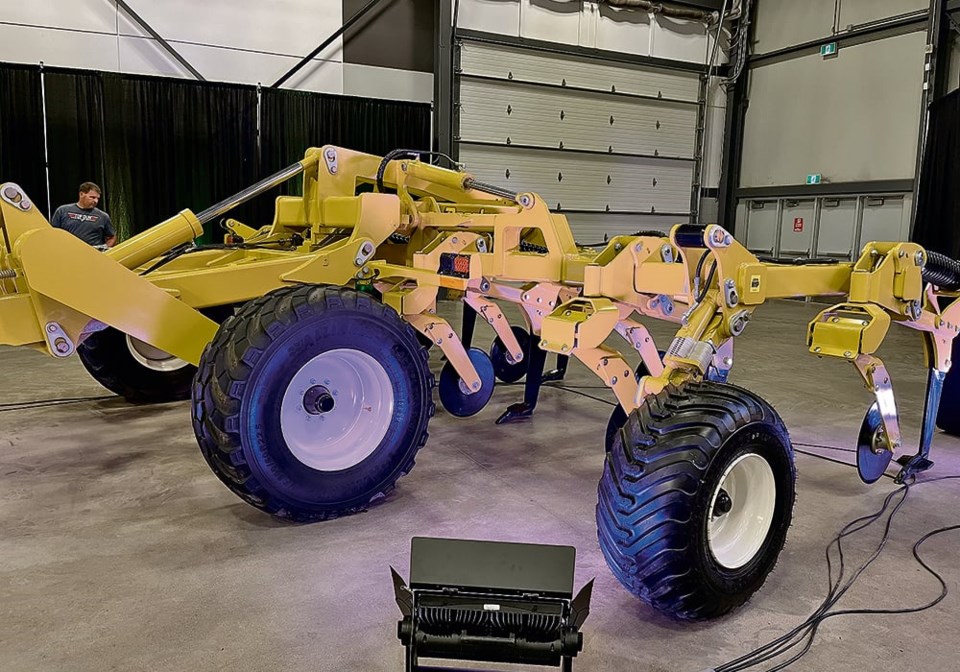REGINA — Soil compaction has not been a serious issue under minimum tillage conditions in Western Canada, but increasingly heavy equipment is having an effect.
Degelman Industries recently launched its heavy duty staggered ripper at Canada’s Farm Show to help alleviate the problem.
The equipment has been available for the last eight months through a soft launch in the United States, where compaction caused by tillage is more widespread, said marketing manager Derek Molnar.
The U.S. market is primary, but the company is now taking Canadian orders for 2025.
Molnar said Degelman worked with producers to design the ripper and with the Prairie Agricultural Machinery Institute to simulate how it would work in western Canadian soils.
“The biggest thing is right there in the name. Instead of being an inline or V ripper, we have a two-row staggered setup,” he said.
“And we found through all our testing that that just gave us the best performance in the field when it comes to draft and not pulling up large rocks just because of that existing or two-row setup. And we know with rocks up here, that’s going to be a major sticking point.”
He said farmers like the customized features.
“Through all of those testings we did, we realized that the shank and the point had a huge amount to do with what your field looked like,” Molnar said. “The machine itself obviously pilots it for you, but at the end of the day, it’s those points and those shanks that are giving you that field finish.
“The narrower shanks, the narrower ripper points, we’re going to be able to destroy that hard pan but not disturb that topsoil finish.”
Lyndon Maurer, senior design engineer, said ripping to ease compaction fits into farming practices in terms of greenhouse gas emissions because it can minimize the release of nitrous oxide.
“When farmers are applying large amounts of nitrogen to the soil, granular fertilizer, if you have compaction in that soil it creates anaerobic conditions, so lack of oxygen in that soil,” he said. “That means that that nitrogen that we applied is gassing off in the form of nitrous oxide.”
Molnar said he expects most Prairie farmers would not use the ripper fencepost to fencepost on their fields.
“First thing they’re going to do is hit up their headlands and their sloughs and where they are unloading equipment in the fields and I think they’re going to see a huge benefit,” he said.
He added 700-horsepower tractors, gigantic combines and constant grain truck traffic in and out of fields are causing the compaction the ripper will fix.
Pricing is unavailable until Degelman works with its dealers to establish the cost.
Other features include three shank options, three shank trip options and a narrow transport size. The transport width is 12 feet 6 inches (3.8 metres), and the height is 12 feet (four metres).




